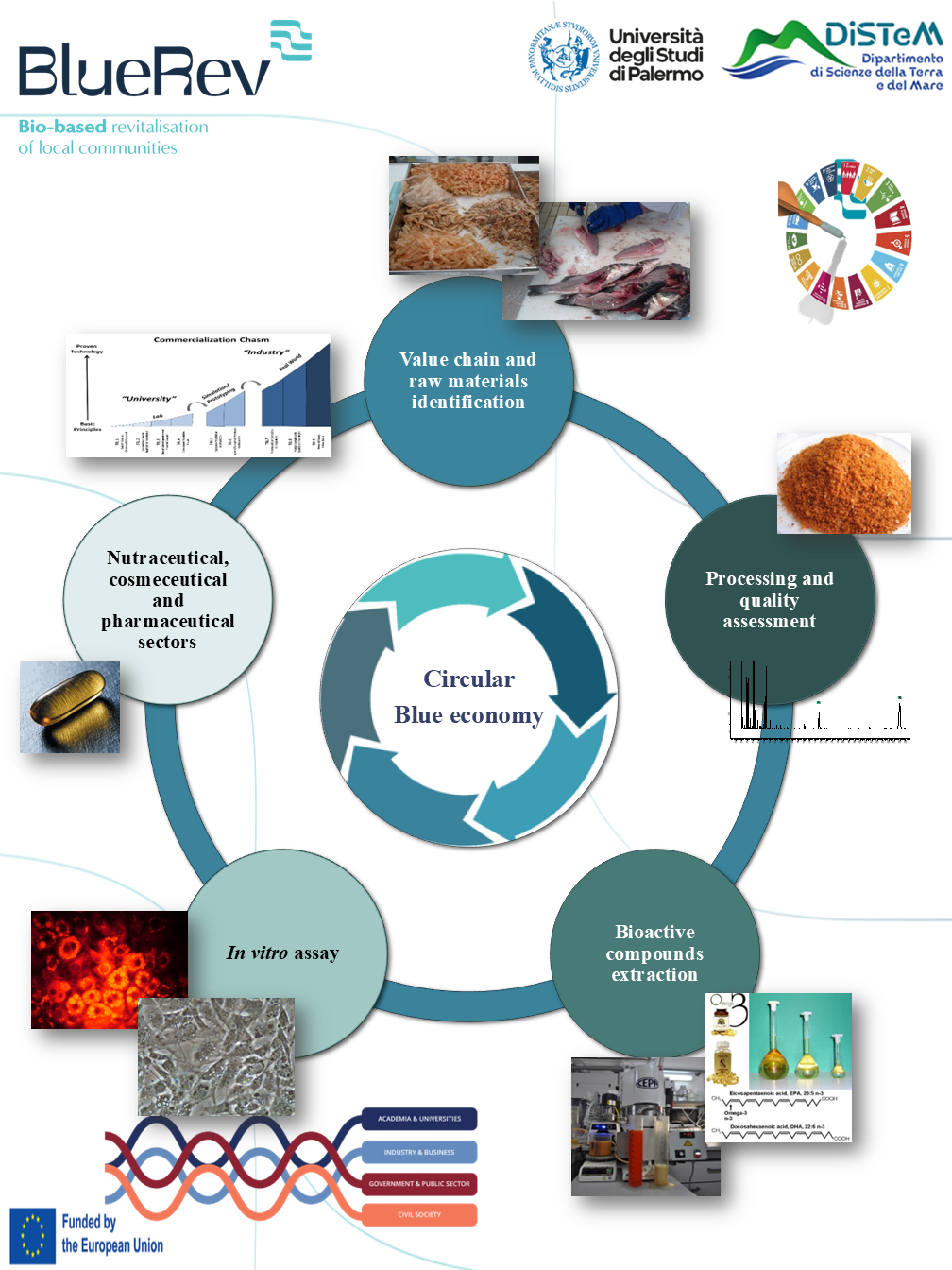The training program "Sustainable innovation in blue bioeconomy" focuses on social, governance, and business innovations. The training provides an introduction to the topics of sustainability and innovations in blue bioeconomy; its challenges/problems, collaboration, and innovative solutions in the blue bioeconomy sector in a regional context. The participants acquire knowledge of various principles, policies, models, resources, collaboration, sustainability indicators, best practices, innovation, and blue bioeconomy trends.
The training program is intended for the students of different disciplines and small-scale establishments.

The training course in charge of UNIPA will introduce the adoption of solutions for the sustainable use of marine resources and by-products, in line with the SDG 2030 agenda, circular economy principles and the green deal, to promote the concept of sustainable consumption and “turning waste into profit”.
The increasing pressure on natural resources determines an urgent need to optimize their yields by reshaping the destiny of the by-products of the main food supply chains.
The reduction of food loss and waste and their valorization is crucial to “go circular” following the principle of circular economy, and achieve the goal of “zero waste”. Considering that environmental sustainability is closely linked to economic sustainability, scientific and technical knowledge is essential to outline the road map of more sustainable business models and optimize the efficiency of aquatic resources utilization, according also to the AGENDA 2030 for the sustainable development goals SDGs of the United Nations Development Programme UNDP, that devoted a particular role to the “resources below the water”, fixing the SDG 14.
The training course leaded by UNIPA, directed to students, master students, PhD students and enterprises, will explore the close relationship between circularity and sustainability, starting from the sustainable use of aquatic resources, valorisation of by-products and importance for the local economy, with potential in the sectors dedicated to the production of ingredients for food, feed, pharmaceuticals and cosmeceuticals, to support sustainable blue growth.
A general overview of Mediterranean fishery and aquaculture value chains, producing marine by-products (BP) and co-products (CP) will be presented and, thanks to the specific experience of UNIPA, some protocols, set-up at high technological readiness level (TRL), will be shared with the participants and in the website: proper selections of BP according to species and intrinsic and extrinsic factors, setup of green technologies for extraction of bioactive molecules, such as omega-3 enriched fish oil, astaxantin, chitin, chitosan, protein hydrolizates, polyphenols and carotenoids; applications in the different industrial domains